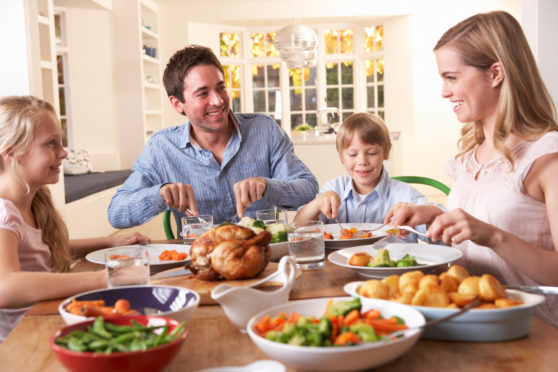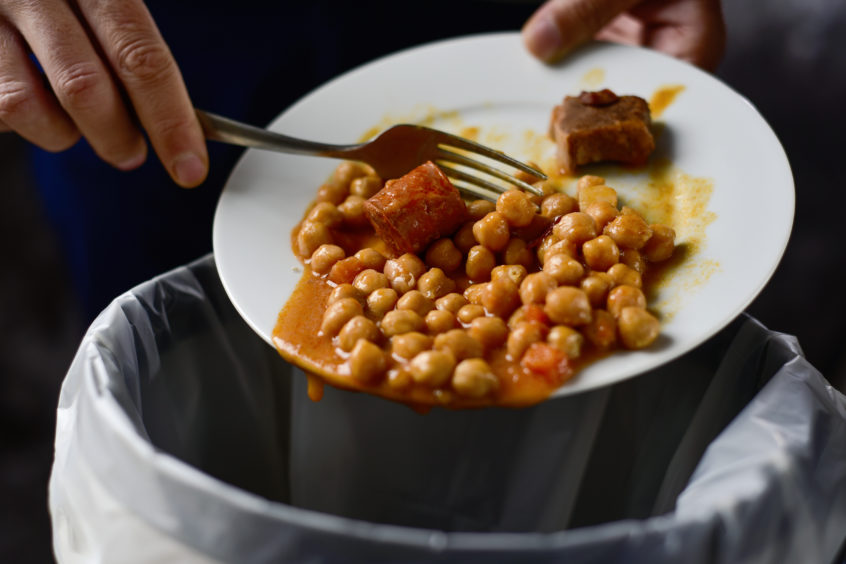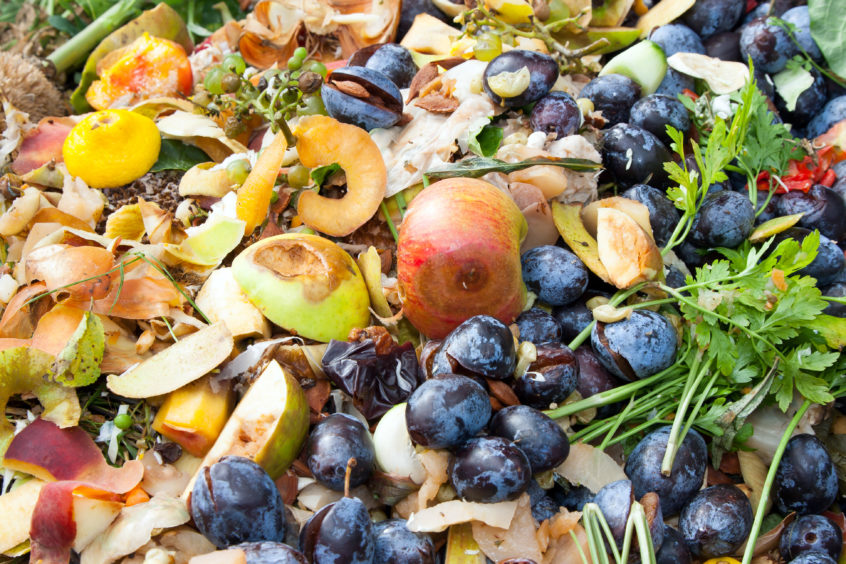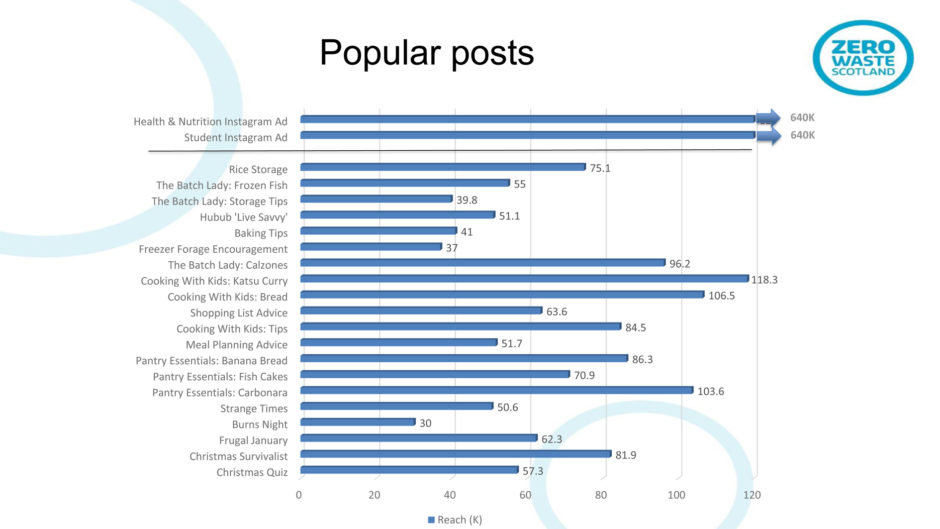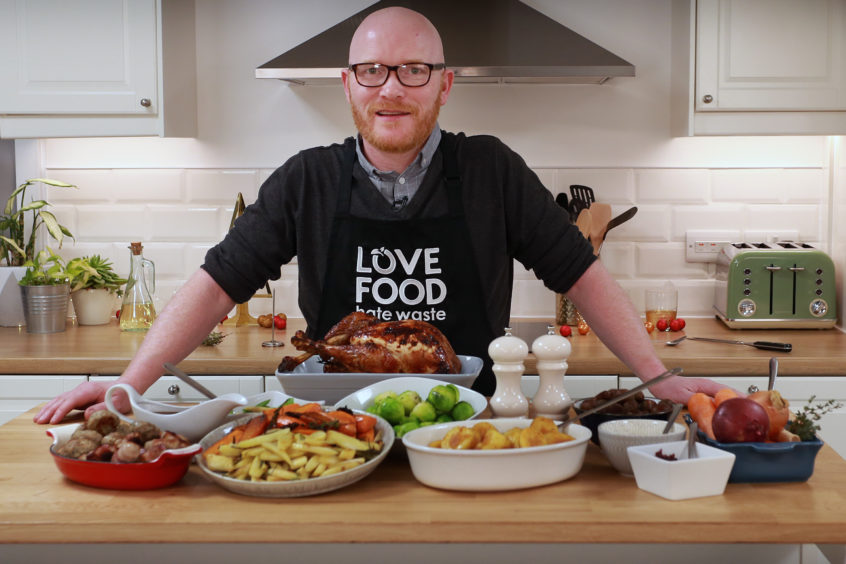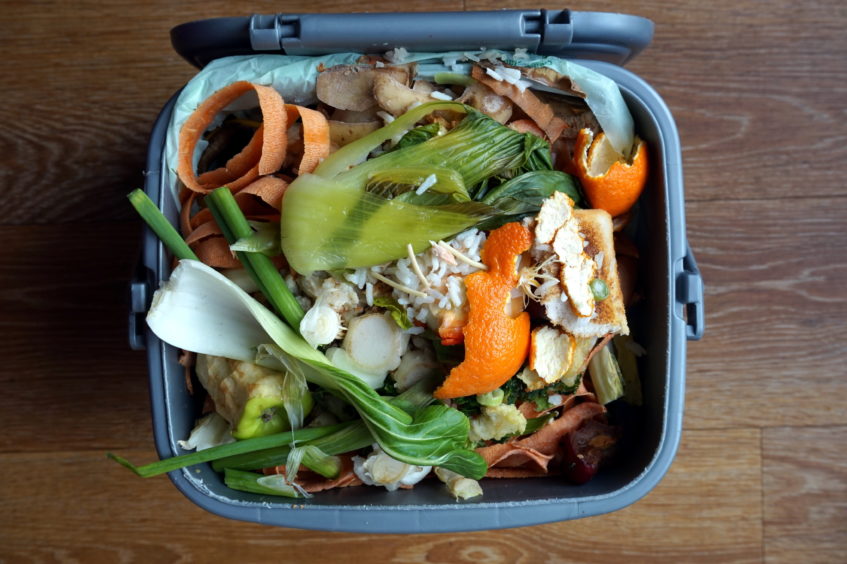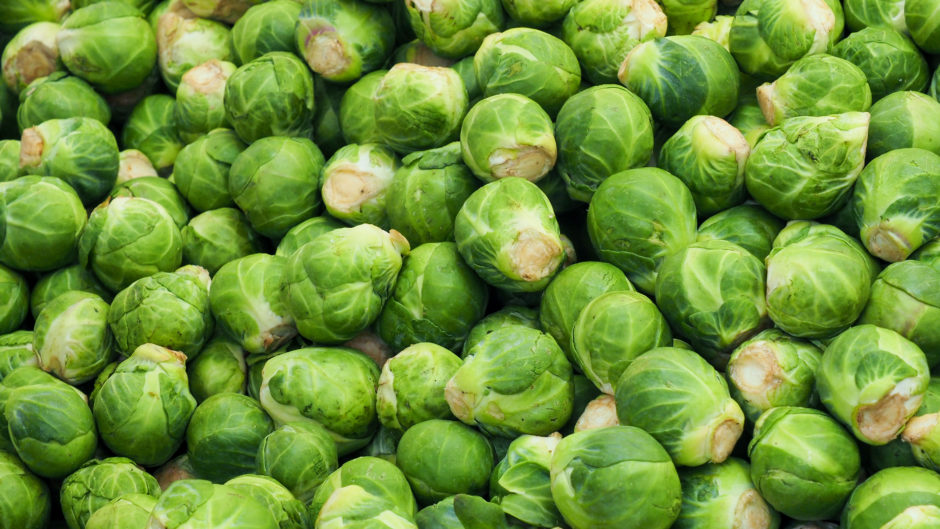Staying at home during lockdown meant most of us were cooking more, baking more and embracing new ideas in the kitchen, all of which has resulted in a reduction in food waste. Brian Stormont discovered our habits have improved dramatically, but we need to maintain this positive drive.
As we move out of lockdown, has making shopping lists, using up leftovers and store cupboard items and planning meals resulted in a reduction in food waste?
It seems it has. A survey of people’s food habits and behaviours in the UK by WRAP reveals they have risen to the challenge of lockdown by falling in love with food again – making what they buy last longer and go further resulting in less wasted food.
As a result of supermarkets operating strict social distancing rules, restaurants being closed and many of us at home all day, our food shopping habits have shifted significantly; we are shopping less frequently and buying more items.
But, the survey has revealed, households have become more resourceful in managing their food, from using up their cupboard stocks, meal planning and list-making, to freezing more and batch-cooking.
Food smart
These “food smart” behaviours should lead to less food ending up as waste. Of four of the key food items people waste most – potatoes, bread, milk and chicken – this latest survey shows that respondents are reporting a 34% drop in how much they throw away.
This reported reduction is especially welcome since people are also buying more of these items than before, with 24% reporting that they have bought more milk in lockdown, and 23% saying the same for bread.
With the pandemic crisis having a profound impact on citizens’ daily lives, WRAP used its bi-annual citizen survey to learn more about how lockdown was affecting behaviours.
The survey, “Citizen responses to the Covid-19 lockdown – food purchasing, management and waste”, compares current behaviour with that reported in previous surveys, and whether this presents an opportunity for the future.
The encouraging results confirmed that this “new normal” in the way we manage our food presents an opportunity for the nation to cement these behaviours in the future and re-evaluate our relationship with food.
With wasted food costing us billions every year and associated with millions of tonnes of GHG emissions, this is good news for our economies and the environment.
Marcus Gover, CEO of WRAP, said: “In this sustained period of uncertainty, UK citizens have shown how resilient they can be when it comes to managing their food. These actions should mean less food goes to waste, helping take the pressure off the supply chain and reducing the number of trips we need to make to the shops – or deliveries to our homes.
“Our goal is to help people use these approaches to set a blueprint for their future actions, but we need support from organisations across the sector. WRAP will continue to seek out opportunities to reach people at home, providing easy ways to maintain this progress, and work in partnership with businesses, local authorities, and government to make this approach to valuing food the new normal.”
Pressure on food supply chain
Sue Roberts who heads up Zero Waste Scotland’s food waste team agrees.
“Obviously the panic buying wasn’t just about food it was just about panic, but food becomes a lightning rod in a lot of those cases about anxiety, security, generosity and enjoying life. Food supplies being disrupted led to people thinking about their food and valuing it more,” she said.
“People having to go out and do a weekly shop meant that they had to start planning. When you combine that with the fact that the food supply chain is under pressure, people don’t take things for granted in the same way.
“That has resulted in the behavioural changes we have seen in WRAP’s findings which are things that we really want people to be doing all the time; checking their cupboards and the fridge before you go, planning seven days’ food, buying what you need, taking that home and storing it properly, planning your meals, using leftovers – all that behaviour just sort of clicked in.”
At Zero Waste Scotland, they took a decision to change tact, moving away from their climate change message in an effort to help people during tough times.
And it was a decision which reaped dividends for the body as it makes efforts to get its vital message across to the population.
People having to go out and do a weekly shop meant that they had to start planning. When you combine that with the fact that the food supply chain is under pressure, people don’t take things for granted in the same way.”
Sue Roberts, Zero Waste Scotland.
“What we did at Zero Waste Scotland was we realised that the information we had could be of great use to people,” said Sue.
“We put our usual climate change messaging aside for a little bit and basically concentrated on putting out information that would help people. That information was around lists and planning, but we also put out a lot of recipes and information about using different foods, such as ingredients you could substitute for another and interesting things that could people remain calm and also help them to avoid waste.
“What we found was that people were really looking for comfort food. Our most popular recipes were 15-minute carbornara, lentil bolognese, fish pie, fish cakes, banana bread – quite homely food.
National chef’s part
“We did a nice set of videos with Gary Maclean, the national chef, at home with his kids and they were really popular, too. We also did a lot of work with the batch lady, Suzanne Mulholland, who showed people how to make a number of meals at the same time and how store them.
“We also had a lot of enquiries about storage. People don’t know you can freeze butter, milk or cream. We have an A-Z of storage which basically shows you anything you want to store and how to store it.”
Zero Waste Scotland’s social media presence was also of great comfort to people as they sought advice during lockdown.
”Our social media following grew enormously during the period,” Sue revealed.
“That was a national demand and not just driven by promotions. What we also noticed was that different people were following us. Before lockdown it tended to be people interested in sustainability or climate change, but what we found it was a different set of people coming.
“The average demographic changed radically and now more than half of our followers are 35 and under which is great because getting young families engaged and people who probably didn’t value food as much before suddenly did.”
Worst wasters of food
And young families and single people engaging with the organisation’s message is massively important when it comes to the subject of food waste.
Sue continued: “The biggest natural wasters of food are young families which you can understand. A busy lifestyle and smaller kids does not make for an easy meal time.
“Young families and young single people are big food wasters because they have less predictable lifestyles and less interest in planning their food. To get them on board and engaged was marvellous for us.
“We discovered that cost and trying to achieve some normality seem to be people’s priorities during lockdown but new data coming from WRAP suggests things may be changing again.”
However, as life begins to return to some sort of normality after the coronavirus lockdown, people will revert to old habits which, says Sue, is a concern.
“People who have gone back to work have resumed a normal lifestyle and may have begun dropping these good behaviours,” she explained.
“A lot of people will have learned things that they will continue, but a lot of people will drop things because of time and because they associate it with a time that’s passed.
“There is a tendency to latch back and we want people to stay with this. Hopefully people will realise they were saving money, eating better and not contributing to climate change.
“We are urging people to remember what they have learned in recent months.”
Climate change message
The climate change message continues to be a critically important one to communicate and waste food contributes massively to the problem.
The majority of people are probably unaware, but most food waste in Scotland is generated by domestic kitchens in Scottish households.
“Most people think it’s manufacturers or supermarkets who are the main contributors to waste and climate change, but they’re not – it happens at home,” revealed Sue.
“When people waste food they waste everything that went in to making it – the land, the chemicals, the farmer’s time, growing it, transporting it, packaging it. If we weren’t wasting as much food we wouldn’t need so much plastic.

“The other big kick is that wasted food ending up in landfill sits and pumps out methane which is many times worse to the climate than Co2.
“The Scottish Government is committed to reducing food waste by 33% by 2025 and when they do this we will be the equivalent of taking one in five cars off the road in terms of greenhouse gas emissions.
“Basically it takes 10 calories of fossil fuel to generate one calorie of food that is produced and ends up on your plate it has taken 130 calories to get it there.”
“That is why it is so important we maintain good habits, but we are in danger of losing these good habits which is heart breaking and understandable.
“If we can waken up to the value of it so we don’t take it for granted and it’s not cool to waste food. It would be great if people valued their food, rather than using it as an expression of generosity or affluence or security and had a much more nurturing approach towards it.
“If people were to look at it in that way that is what we want to take forward.
“There have been some really good positive changes during lockdown and we are still shopping less frequently. A number of people are still not using a list, although less food continues to be wasted.
Good food habits
“People still think food management is important and we know there is a real danger of losing it because of people going back to normality.
“Going back can mean losing good habits and a lot of people may have developed bad habits over a lifetime. We have lost the climate change connection for now, but as we come out this a lot of good habits are being maintained.
“It’s important that people hold on to the habits they have developed and not associate these good behaviours with a bad time.”
The WRAP survey found that people have multiple approaches to managing their food. On average, individuals identified six new behaviours which contribute to this positive trend. For example, almost half of those surveyed are checking their cupboards and fridge more before they shop, and one in three are taking more time to check where food should be stored.
Almost 40% of people believe food such as chicken breasts must be frozen on the day of purchase, when in fact these can be frozen up to the “use by” date, giving people more flexibility around when to freeze such foods.”
Moreover, all the actions people reported adopting were considered to be useful, with “freezing more food” rated most useful of all by 97% of recipients. Saving leftovers, batch cooking and making a shopping list were also rated highly by more than 95% of recipients.
Whilst citizens have been willing to adopt many new behaviours, the survey identified several important knowledge gaps around how best to reduce the amount of food thrown away. Almost half (49%) believe that apples last longest if they are stored at room temperature out of the original packaging, but in fact they can last much longer in the fridge in the original packaging.
Furthermore, almost 40% of people believe food such as chicken breasts must be frozen on the day of purchase, when in fact these can be frozen up to the “use by” date, giving people more flexibility around when to freeze such foods.
Not eating our greens
As a whole, people have been trying to eat healthier during lockdown, but other research has revealed, on average it has been longer than a month since most Brits ate broccoli, more than seven weeks since consuming greens like kale and six weeks since Brits ate celery.
The survey of 2,000 people last month found other traditional salad ingredients like lettuce leaves, tomatoes, sweetcorn and cucumber didn’t fare well either, as it has been longer than four weeks since the average Brit tucked into them.
Experts claim that eating a diet rich in leafy greens can offer numerous health benefits, including a reduced risk of heart disease, high blood pressure and mental decline.
Yet, the study by Higgidy reveals, as a nation we eat just two pieces of fruit and veg a day (average), a far cry from the recommended five portions daily.
And nearly half of the 2,000 adults surveyed (47%) confessed they rarely or never eat five portions a day, with nearly one in 20 (3%) confessing they do not eat any vegetables.
Excuses for skipping the five portions include not finding veggies exciting (39%) and not liking the taste of them (37%).
One third also admit they think it takes too much time and effort to prepare salads and vegetables daily.
According to the survey, the Brussels sprout is still the most hated vegetable, with 19% of Brits admitting they simply cannot stomach them.
Artichokes (14%), aubergines (13%) and celery (13%) also emerged among the most loathed veggies, according to the poll.
When it comes to vegetables we do like, carrots (30%) emerged as the nation’s favourite, followed by potatoes.
Camilla Stephens, founder of Higgidy and author of “Higgidy: The Veggie Cookbook”, said: “As a nation we’re falling far behind the recommended five portions of fruits and vegetables a day. I was really surprised to find that Brits think veggies taste bland, boring and unexciting, while admitting their dinner plates are on average 40% beige.”
